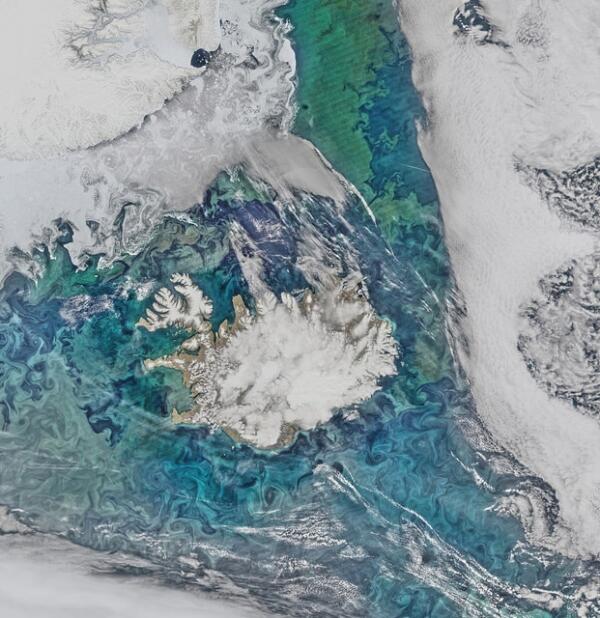Will warmer climates like France, United Kingdom, and southern Europe feel chillier in the future?A new study contributes more to the idea that, contrary to the oft-publicized view that climate change means warming, melt, and palm-tree havens, retreating sea ice in the Iceland and Greenland Seas could change the circulation of warm and cold water in the Atlantic Ocean, throwing off Europe’s balance of warm air from its traditional circulation of currents–and make Europe colder. “A warm western Europe requires a cold North Atlantic Ocean, and the warming that the North Atlantic is now experiencing has the potential to result in a cooling over western Europe,” says professor G.W.K. Moore of the University of Toronto Mississauga (UTM)’s Department of Chemical & Physical Sciences, according to a release. Normally, cold, dense water, generated through a process called ocean convection, flows south and feeds the Gulf Stream. If convection lessens, Moore said in a release, a weaker Gulf Stream may reduce the warming of the atmosphere. Previous studies have focused on the changing salinity of the northern seas, but not on changes in the air-sea heat exchange in the region. Moore and other scientists based research on wintertime data from 1958 to 2014, provided by the European Centre for Medium-Range Weather Forecasts and model simulations, according to a release.
Normally, the Gulf Stream is a warm and pushy entity, sending warm water toward western Europe–where the water loses heat and moisture to the atmosphere, moderating the region’s climate. At this point, the now-colder air pushes south toward Africa, continuing a cycle called Atlantic Meridional Overturning Circulation, according to a release. In the past, the region of maximum heat exchange at the edge of the sea ice has occurred at the same place where conditions are optimal for convection to happen. However, as sea ice retreats with its maximum heat exchange region, a heat exchange over the locations where sinking occurs in the ocean does not happen as often. “The heat exchange is weaker — it’s like turning the stove down 20 percent,” says Moore in a release. “We believe the weakening will continue and eventually cause changes in the Atlantic Meridional Overturning Circulation and the Gulf Stream, which can impact the climate of Europe.” Others contributing to the research were at the University of Bergen, Woods Hole Oceanographic Institution, and University of East Anglia. natureworldnews











